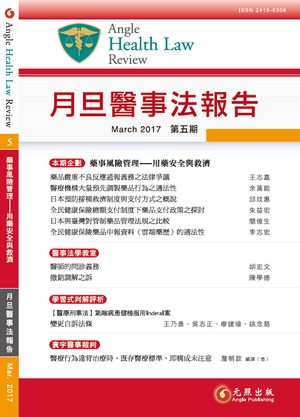論醫院中媒體採訪之法律與倫理問題──美國Chanko v. ABC案的啟示【醫法新論】 試閱
The Legal and Ethical Issues of Media Interviewing and Filming in Healthcare Settings—Lessons from Chanko v. ABC
現今媒體對於醫療現場、公眾人物健康狀況的報導相當頻繁,然而,臺灣醫療法明文規定對於醫護人員之保密義務,究竟醫院與醫護人員接受媒體採訪的界限何在,臺灣法上似較少討論。本文以美國Chanko v. ABC 一案為例,在該案中,醫院及醫生接受媒體醫療實境節目拍攝,但未取得病人及其家屬同意,即便節目有對病人的影像做去識別的後製處理,法院仍認定違反醫病關係保密義務而構成侵權。本文回顧該案主要理由,以及聯邦主管機關事後發布的聲明、醫療倫理的討論,並對臺灣法進行檢視。
Films and descriptions of scenes of bedsides and emergency rooms, scoops of the health status of public figures, and other stories of the healthcare settings are common in today’s media. Meanwhile, the duty of confidentiality by healthcare providers is also the core of patient-physician relations, as the Medical Law of Taiwan explicitly stipulates this rule. Yet, how should healthcare providers deal with the filming and interviewing of media? The current legal scholarship in Taiwan does not seem to have much discussion. This article examines Chanko v. ABC, where the hospital and physicians agreed the staffs of a medical reality to enter the emergency room to film the scenes without consent from the patient or his family. Despite that the patient’s image was pixilated for de-identification, the court held the hospital and the physician liable, violating the duty of patient-physician confidentiality. This article attempts to learn lessons to the Taiwan law through reviewing the reasoning of this case, the federal agency Office of Civil Rights’ subsequent statement, and related debates on medical ethics.
192-208






